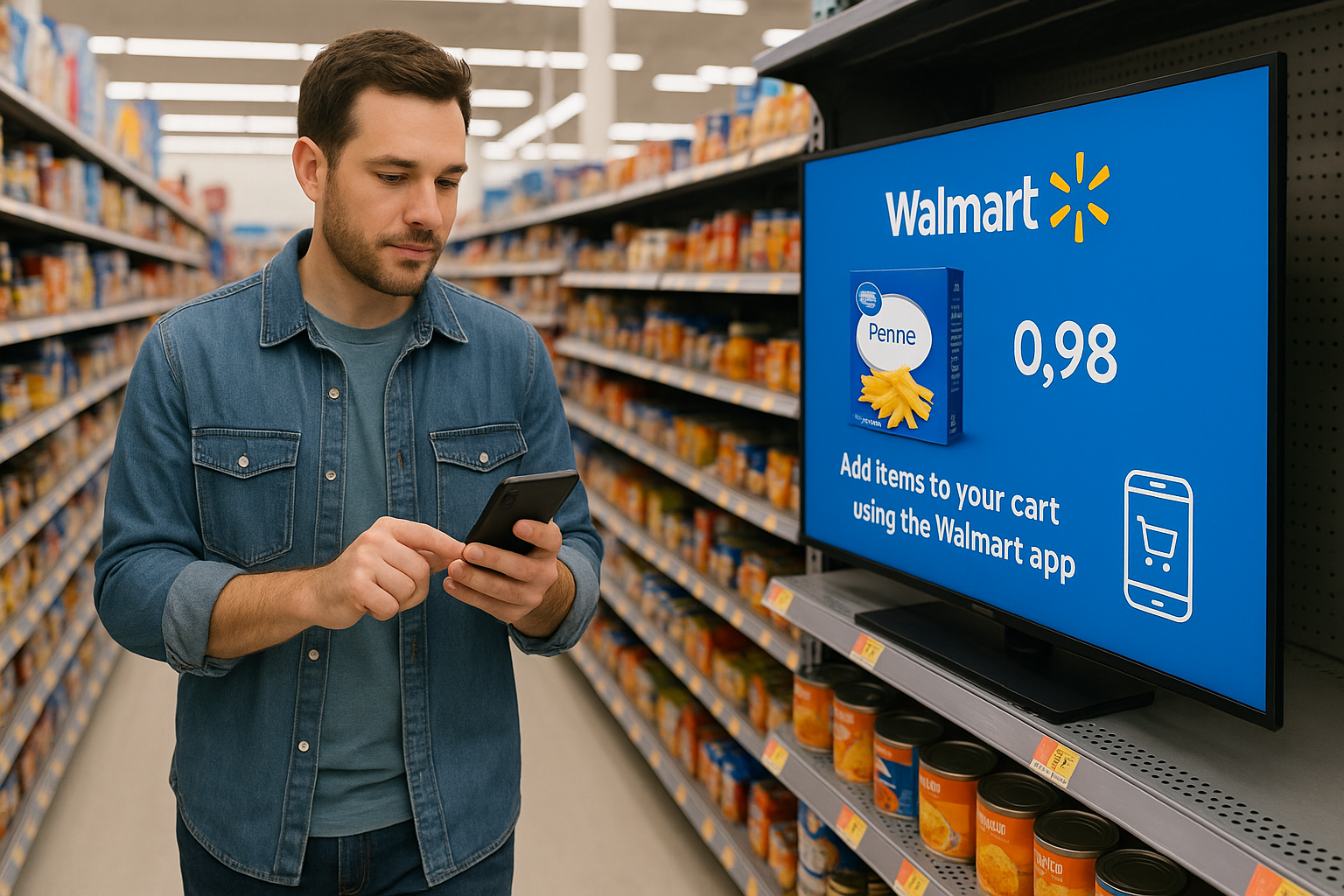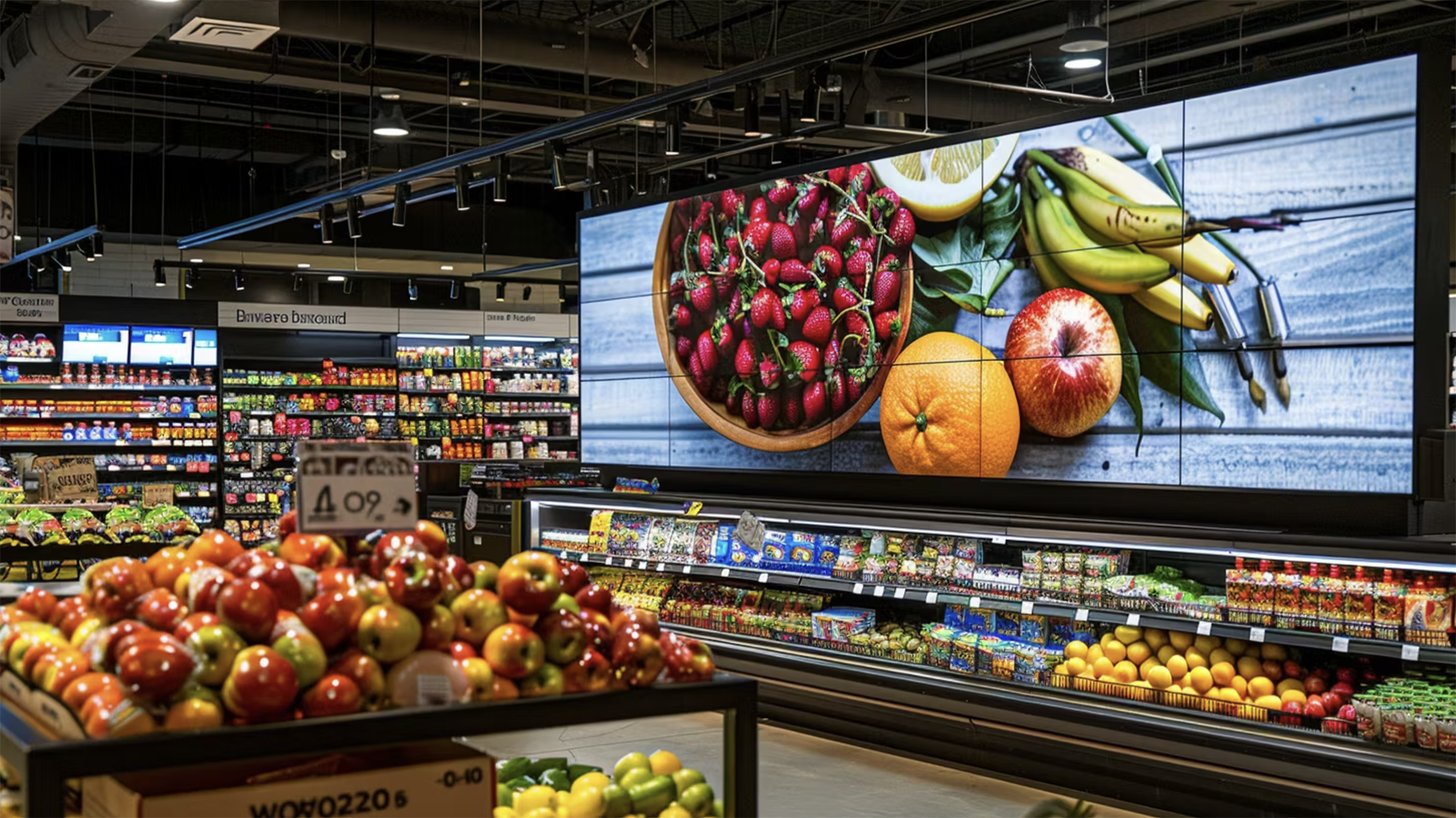5 AI-Based Personalization Strategies to Boost Digital Profitability in Grocery
.jpg)
At a Glance
- 86% of consumers expect personalized experiences, yet only 11% of grocers have personalized half of the shopper journey.
- 69% of consumers abandon carts due to a lack of personalized product substitutes.
- 93% of consumers are influenced by relevant ads, and 73% are more likely to click on personalized advertisements.
- Effective segmentation can drive $12.3 billion in incremental sales and increase basket size by 3.2%.
- 77% of grocery executives agree that personalization directly boosts sales and enhances customer loyalty.
In today’s competitive landscape, omnichannel grocery consumers expect personalized, seamless experiences. Whether it’s tailored product recommendations, relevant stock substitutes, or individualized offers, modern consumers demand more from their digital shopping experiences. However, despite the rise of e-commerce, 11% of grocers have personalized even half of the consumer journey. This gap presents a significant opportunity for grocers to leverage AI-based personalization to improve customer acquisition and retention.
Understanding consumer sentiment is crucial to crafting effective personalization strategies. With 86% of consumer s wanting personalized experiences and 53% switching to competitors due to poor digital experiences, grocers must act quickly to meet these demands. As 69% of grocery executives rank personalization as a top priority and 77% believe it directly improves sales, investing in AI-driven solutions is essential.
We now explore the current sentiment of grocery consumers to understand their priorities and preferences.
Understanding Consumer Sentiment
Omnichannel consumers now demand a seamless, personalized experience, with 86% expecting interactions that cater to their unique preferences. Much like traditional shopkeepers who knew their regular customers’ needs, modern consumers expect grocers to anticipate their preferences, whether that’s remembering past purchases, offering relevant product substitutes, or providing personalized deals and promotions. Yet, poor digital experiences cause 53% of consumer s to switch to a different retailer, according to Grocery Doppio’s market pulse report. In this competitive environment, personalization is recognized by 81% of grocers as a critical differentiator. While 72% of grocers are increasing their investments in personalization, it's crucial to focus on strategies that directly drive sales.
Here are five key elements to consider when shaping an AI-driven Personalization strategy.
Encourage Substitution Alternatives
consumers today expect real-time alternatives when a product is out of stock. Historically, shopkeepers could quickly offer relevant substitutes to satisfy customers. However, in the digital space, 69% of consumers abandon their carts when they can’t find suitable replacements for unavailable items. Incorporating an AI-based system that provides personalized substitutions is essential for improving customer satisfaction and retention.
To get started, grocers can offer pre-selected substitute options and ensure effective communication of available alternatives during checkout or delivery. Building trust through transparency in this area will significantly reduce customer churn.
Targeted Product Recommendations
Personalized product recommendations play a vital role in converting casual browsers into buyers. Studies show that 93% of consumers are influenced by relevant ads and 73% are more likely to click on advertisements that match their interests. Implementing AI-driven targeted recommendations in your digital advertising can lead to higher conversions and larger basket sizes. Tailored recommendations not only meet customer needs but also encourage frequent purchases and higher basket sizes, significantly boosting profitability.
Consumer Segmentation
consumers today vary widely in terms of preferences, from convenience-driven millennials to budget-conscious families. Back in the day, one-size-fits-all approaches worked, but now personalized experiences are a must. Grocery Doppio's study shows that effective consumer segmentation can drive $12.3 billion in incremental sales. Moreover, personalizing the shopping experience based on distinct customer segments has led to a 3.2% increase in basket size.
Adopting AI to create precise consumer segments based on behavior, preferences, and demographics will lead to more targeted and effective personalization efforts.
Integrating AI for Data-Driven Insights
Though fewer than 7% of grocers have leveraged AI for consumer segmentation, the potential impact is massive. With 86% of grocery executives recognizing AI as essential, there’s no better time to integrate it into your strategy. AI can analyze consumer behavior, preferences, and even dietary needs to deliver highly relevant recommendations, seasonal offers, and customized experiences.
As digitally influenced sales now account for 69% of grocery purchases, the value of integrating AI to support personalization cannot be overstated. It enhances customer engagement and improves retention and loyalty.
Enhancing Customer Loyalty through Personalization
Personalization goes beyond just driving sales, it creates long-term loyalty by consistently delivering what customers want, where they want it, and how they want it. By implementing AI-driven strategies to personalize every touchpoint in the customer journey, grocers can significantly improve their overall profitability.
Studies show that 77% of grocery executives agree that personalization has a direct impact on boosting sales, while reducing churn and fostering stronger customer relationships.
Conclusion
The future of grocery retail lies in leveraging AI to create personalized, seamless shopping experiences. By prioritizing these five strategies; encouraging product substitutions, offering targeted recommendations, embracing consumer segmentation, integrating AI, and fostering customer loyalty, grocers can position themselves at the forefront of the industry.


.png)



.png)
.png)



.png)


